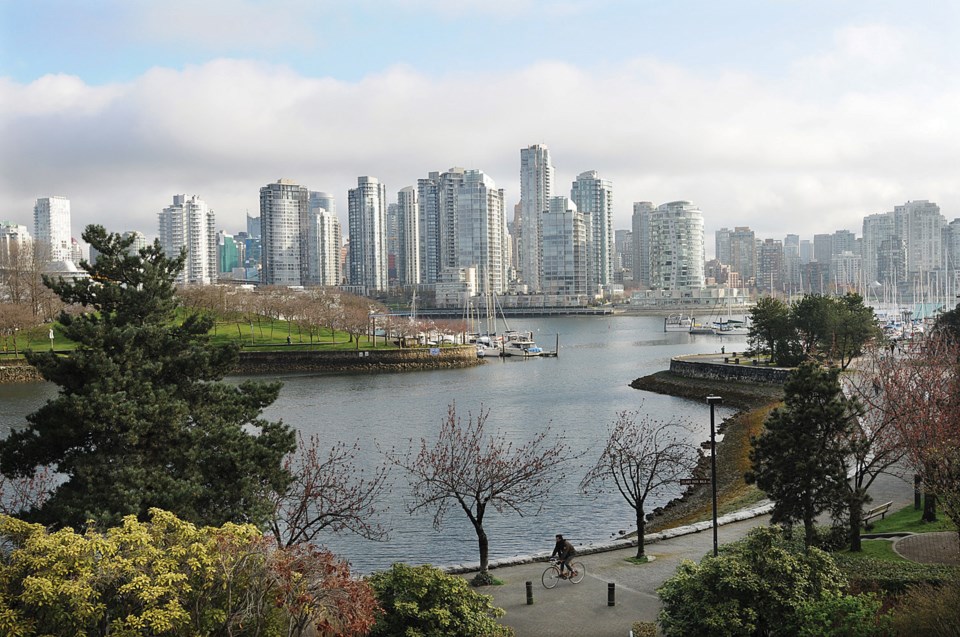When the Urban Development Institute convened a panel to discuss the year ahead in real estate three months ago, a recurring theme was the need for leadership to deal with the shortage of industrial land, affordable housing and all manner of competition for space in a region constrained by mountains, water and legal boundaries.
Tsur Somerville, an associate professor and director of the University of British Columbia Centre for Urban Economics and Real Estate, told the recent Vancouver Real Estate Forum that everyone wants someone else to take action on the region’s most pressing issues.
“There’s a failure of leadership,” he said. “There’s a real failure on the part of us, collectively, to buy in to making whatever level of sacrifices we have to make to really make things successful for us going forward.”
While everyone agrees on the importance of housing affordability and transit, density and new construction are things that should take place elsewhere because no one wants to be upset.
This presents Vancouver with stark choices of eternal importance, according to Jon Stovell, president of Reliance Properties Ltd.
“Vancouver’s entire soul, as a city, is on the block right now because we’re in the process of making that choice to say … it’s easier to push density out to the suburbs because there’s more land and less established neighbourhoods that you’re upsetting,” he said. “We’re afraid of change, and if we don’t address it soon, Vancouver’s just going to become a tomb for money and a neighbourhood for the super-rich.”
SAME OLD TUNE
Yet the most discouraging aspect of the discussion is that it’s been happening for a decade.
Architect Bing Thom famously kick-started the discussion by voicing fears at the 2006 World Planners Congress that Vancouver was becoming a resort for the rich rather than a city with an identifiable local character. By 2009, the observation was received wisdom, with Tracie McTavish, then president of Rennie Marketing Systems, stating, “Vancouver is a resort city, not a corporate city like Calgary.”
Two years later, in 2011, Bing Thom felt that the West End was still viable territory for renters but turned his attention to Vancouver’s west side, charging residents with an unwillingness to make the sacrifices needed to ensure the city’s growth.
“You’ve got all these NIMBYs that don’t want any change,” he said, noting that the fear of tax increases if development stalls might be the only thing to get west-side homeowners to embrace change.
Now, five years later, the conversation continues, but with greater intensity. The talking points remain the same, even as prices continue to increase and the supply of residential listings — as the Real Estate Board of Greater Vancouver, among others, has reported — diminishes.
ANGST EXAGGERATED?
Recent reports of the angst that prospective homeowners and young families seeking larger quarters feel suggest that anyone who didn’t get into the market before things really took off in 2009 are out of luck.
Yet a similar angst prevailed as condo values doubled in the run-up to 2006. Those of us looking at the time never had a chance back then, either.
Would-be buyers, take heart: stats from the Real Estate Board of Greater Vancouver offer comfort.
The benchmark price for resale properties in the region rose 88.5 per cent between 2001 and 2006. Within Vancouver, detached west-side properties increased the least, at just 83 per cent, while east-side apartments increased 111.2 per cent.
The most recent five-year shift in benchmark pricing has been more modest, with apartments citywide increasing just over 34 per cent while detached west-side properties have increased just 60.3 per cent. And, since 2009, the gains have been approximately 40 per cent and 90 per cent, respectively.
pmitham@telus.net
For business news see biv.com



